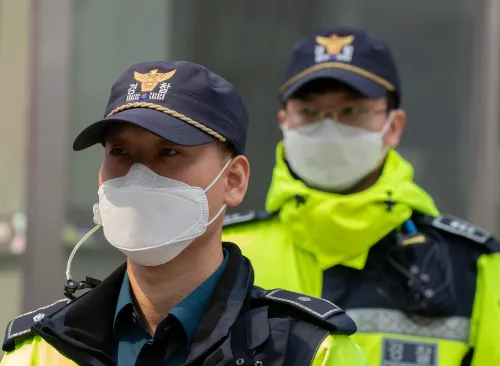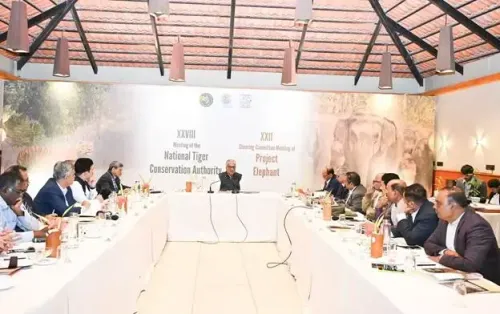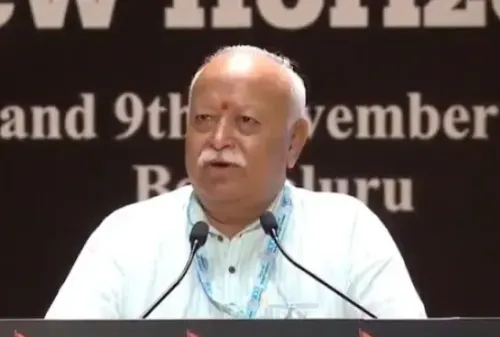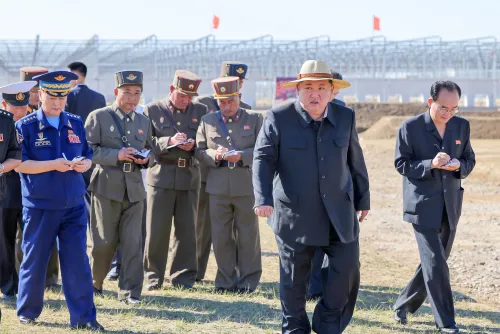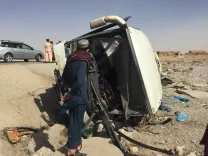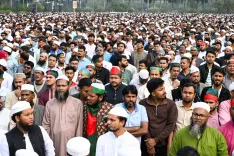Why is RJD MLA Facing Criticism for 'Bhura Baal Saaf Karo' Slogan?
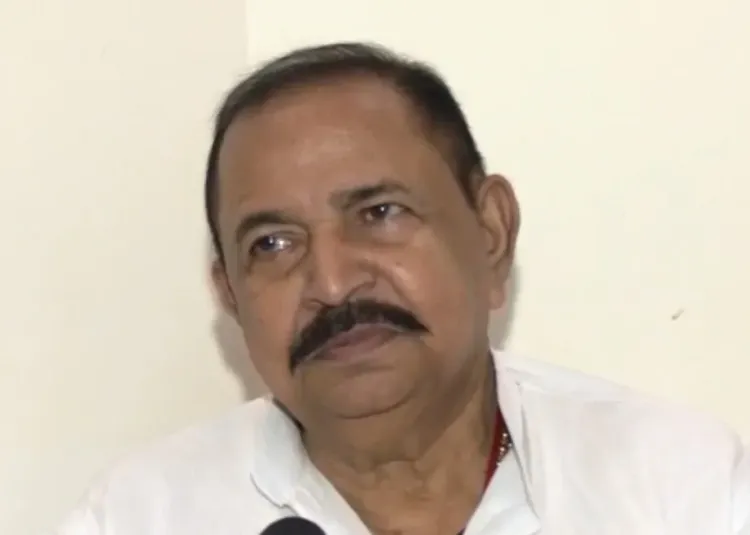
Synopsis
Key Takeaways
- 'Bhura Baal Saaf Karo' slogan resurfaces in Bihar politics.
- RJD MLA Ranjit Yadav faces backlash for the slogan.
- BJP demands accountability from RJD leaders.
- RJD denies association, emphasizing its values of equality.
- Controversy reignites discussions on caste politics.
Patna, July 11 (NationPress) The contentious phrase ‘Bhura Baal Saaf Karo’ has emerged once more in the political arena of Bihar, causing a stir as Rashtriya Janata Dal (RJD) MLA from Gaya, Ranjit Yadav, also known as Ajay Yadav, is under fire after it was chanted during a public demonstration. The BJP criticized the slogan on Friday and called for accountability, while the RJD sought to disassociate itself from the matter, asserting that it does not align with the party's principles.
In a strong rebuttal, BJP leader Virendra Singh remarked to IANS, “Such rhetoric is detrimental to society. This divisive language mirrors the tactics used during Lalu Yadav's governance. Bihar is peaceful today under Nitish Kumar’s leadership, and such statements threaten public harmony.”
Singh urged RJD leader Tejashwi Yadav to take accountability and make a public apology.
“Tejashwi needs to act. If he aspires to be recognized as a leader, he must acknowledge that this was a blunder and those responsible should offer an apology. The nation is progressing under Prime Minister Narendra Modi, and individuals like this are trying to revert us to the pre-2005 Bihar. They’ve missed the bus; there’s no merit in resurrecting such slogans now.”
On the other hand, RJD leader Subodh Mehta stated that the party has no affiliation with the slogan and declared that it contradicts the fundamental values of the RJD.
“The RJD is grounded in the principles of Emperor Ashoka’s Chakras, focusing on Bahujan Hitay and Bahujan Sukhay. Along with advocating for social revolution, Lalu Prasad Yadav has consistently championed economic transformation,” Mehta remarked.
He emphasized that such slogans are often used to tarnish the party's reputation during election periods.
“This phrase resurfaces before every election and is inaccurately attributed to us. We bear no responsibility for it. The RJD stands for equality, freedom, and social justice. Such divisive remarks emanate from those who oppose the empowerment of the disadvantaged,” he added.
Meanwhile, the slogan, which has a controversial background, was purportedly first used by RJD founder and former Bihar Chief Minister Lalu Prasad Yadav in the 1990s, advocating for the political sidelining of upper caste communities—Brahmins, Bhumihars, Rajputs, and Kayasths. Although Lalu has denied coining the phrase, its resurgence continues to evoke political discord.
During a protest on Thursday in Gaya’s Atari Assembly constituency, RJD supporters were caught on video chanting the slogan. The dharna took place at Shivala village against the construction of a playground near the panchayat bhawan. While addressing the crowd, Munarik Yadav, spouse of local sarpanch Sahoda Devi, invoked Lalu’s alleged slogan, saying, “Lalu Yadav used to say ‘Bhura Baal Saaf Karo’. Now it’s time to clean Bhura Baal.”
RJD MLA Ranjit Yadav was present at the event, prompting criticism from opposition parties who argue that his silence signifies endorsement.
The term ‘Bhura Baal Saaf Karo’ translates to “clean the brown hair,” often interpreted metaphorically as a call to remove upper caste members—Brahmins, Bhumihars, Rajputs, and Kayasths—from positions of authority.
Despite Lalu Prasad Yadav’s denial of the slogan’s origin, it remains intertwined with the identity politics of the 1990s. Its revival in today’s politically charged environment has reignited discussions surrounding caste, representation, and the legacy of previous leadership.
The viral video from Gaya has polarized public opinion. While some endorse the affirmation of backward class identity, others view it as a harmful revival of caste-based division.
With the BJP demanding accountability and the RJD attempting to clarify its stance, the slogan has reignited discussions in Bihar’s political landscape ahead of the approaching elections.


